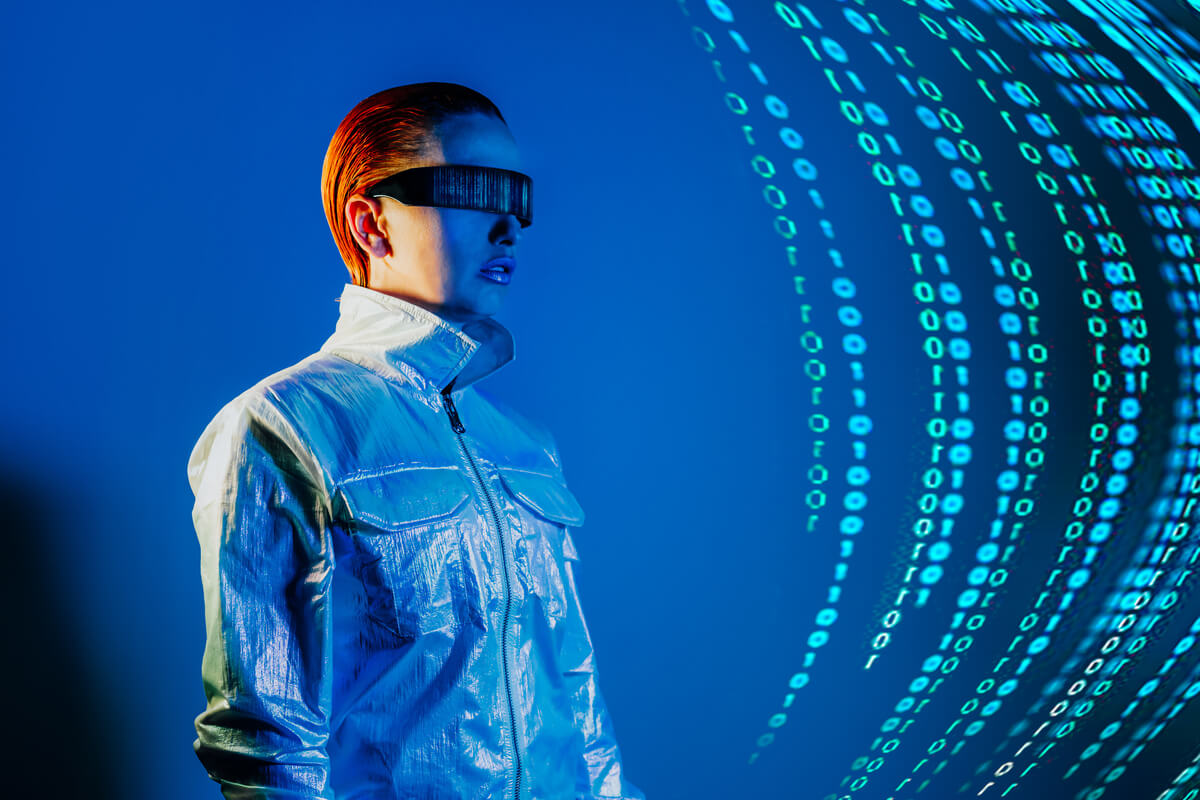The Search for God Page 3.1.1
The Beginning
From the first moment we are conceived, we enter physical reality. We grow and develop in our mother’s womb and are finally born into an oxygen-rich atmosphere where we take our first breath.
For the first months of life, we are attached to adults who take care of us and nurture us until we utter for the first time “I” or “no.” At some level, we begin to recognize that we are separate from the world around us, yet we share a common experience with others.

When we speak of reality, we can speak of individual reality, shared reality, and ultimate reality. What’s the difference?
Individual Reality
Individual reality is the reality we experience, such as what is going on in our brains and in the world around us. In my current reality, as I am sitting and typing, there are nurses performing duties, people calling out on the radio, patients sitting in rooms, and my wife is at the waterpark with two of our children.
Each of us has our own reality that we are experiencing. But we know that our reality does not correspond to all reality, and our reality will end at some point. In addition, our reality is limited to what we can experience through our senses and our mind.
We can’t experience or sense internal cell function even though we know our cells exist and function. Just like I don’t know the moment-by-moment function of the keyboard or my Honda CR-V, I just know they function.
Deviations Of Individual Reality
Individual reality can fail when our senses show dysfunction, such as in a mental illness, hearing voices that are not there, or from the results of using mind-altering drugs. How do we know they are not tapping into some extrasensory perception not available to other humans?
This is where shared human reality comes into play. Maybe we are all in the matrix and tied to some universal machine. “I’ll take the red pill, please.” Maybe, but where is the evidence?
This brings us to the more pervasive and difficult deviation from reality for individuals—belief. Many humans will develop theories and beliefs that no matter how much evidence is presented to the contrary, they will persist in their belief about their view of reality.
This is why belief is so powerful. This is why people with mental health challenges struggle; they believe in their own perceptions and views of reality and the nature of self, and they are often unwilling to take medication or listen to other people. One deviation is of the senses, and the other deviation is of our reason or mind.
Evidence Of Shared Reality
So, how do we know our individual reality is not some dream or illusion? We witness other individuals that experience a reality separate from our own but that we can participate in. This means I can take 1,000 people who work at a hospital, they come to work each day and share similar experiences.
We can document their daily activities at home with children who grow and change. I can doubt they exist. I can believe we are all stuck in a computer program like Free Guy or the Matrix until I contemplate the issue of free moral agent.
Within this shared reality, certain facts are verified laws and rules of nature displayed. Other people confirm what I see and touch and hear. I can and do make decisions that affect other people, and they make decisions that affect me.
So when we ask what reality is, how do we perceive reality other than what our senses tell us and what reason dictates? We are limited.

Ultimate Reality
So maybe we are in Free Guy, maybe we are Neo stuck in a world we are trying to comprehend. What do we need? We need someone outside or someone who can verify true reality. This is the challenge.
What if another being comes along that lives within our universe, can they speak to ultimate reality? Even for those living outside the Matrix and the machine city, they are not eternal. Those beings and machines are still stuck in a universe of causality.
When I try to contemplate an uncaused, eternal being, a being with all-knowledge, transcendent, living outside our universe, but yet able to penetrate our universe, my mind rebels. This being must have a cause too, right? This being must change, correct?
Because my mind cannot fathom this type of being, it rebels and wants to consider something more familiar, something more comprehensible. What I realize is that without assistance, humans will never understand or comprehend ultimate reality. So again, I must hold a tension.
On the one hand, I must accept what my reason suggests god should be like; on the other hand, my mind must hold, in concept, a being I will never understand. I must accept reality as encountered and embrace god as expected and unexpected.
God Inside The Universe
So, returning to the examples we used previously when I consider a being who can understand ultimate reality, I must acquiesce to the idea that, most likely, god resides outside of time and outside this universe.
Could god be god and be stuck within the Matrix, stuck within time? The idea of transcendence, what does it really mean? Check out the article: What is transcendence?
Previously, we considered an all-knowing god and provided two options of how god could be all-knowing. Option one, god could be the universe and know everything within the universe, but this god would be confined to time and unable to predict the future.
So in a human sense, god has one type of all-knowledge. God would have all knowledge of ultimate reality second by second, but not all-knowledge of the future. This idea is some form of pantheism.
In addition, this god would be changing and becoming, this god would lack complete knowledge outside of himself. This god would be everything in the Matrix, all the computer code, all the digital bits, and all the inputs.
This god would possess all knowledge within the universe but would be dependent on time and beholden to the reality he created, or he would be a manifestation of reality. So of this being, we would not say, “god is everything,” but only “god is this universe,” like a raindrop in a multiverse thunderstorm.
The second option is that god is outside of our universe and time. This being would have greater knowledge. This being would be. There is nothing outside of this being. Again my mind is blown.
I cannot comprehend a being that is being itself and nothing resides outside this being. A being outside of time. So we theorize based on ultimate reality that god is existence and that god resides outside of time. This god has no dependency on His existence.
What Next?
- What is the crucial concept?
- Ultimate reality can only be communicated by an all-knowing, transcendent being residing outside time who exists non-dependently. Does your brain hurt? Mine does.
- Why is that significant?
- Philosophy is dependent upon the laws of logic and causality, which bring us back to the same definition of god.
References And Links
The Search for Ultimate Reality
What Is Beyond the Physical?: A Blueprint for Thinking with R.C. Sproul
Is reality real? These neuroscientists don’t think so | Big Think
What is Ultimate Reality?
- IMS Technology Servce – Perception vs. Reality
- Medium – How Real is the Reality?

Leave a Reply